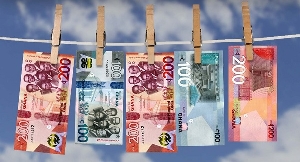Copyright ghanamma

Criminal networks are exploiting trade and banking systems to move billions of dollars across borders undetected. This stark revelation was made at the 2025 FATF/GIABA Joint Experts Meeting in Accra recently. Director-General of the Inter-Governmental Action Group against Money Laundering in West Africa (GIABA), Edwin W. Harris Jr., said trade-based financial crimes are now among the most complex and least understood threats facing the West Africa region. He cautioned that no country can yet claim victory against money laundering or terrorist financing. The Accra forum brought together anti-money laundering (AML) and counter-terrorist financing (CFT) experts from across the Financial Action Task Force (FATF) global network to discuss emerging typologies, with trade-based crime topping the agenda. Criminal groups increasingly exploit cross-border trade systems, digital payment channels and corporate fronts to move illicit proceeds, undermining tax collection, distorting markets and eroding public trust in financial institutions. ‘Every megawatt is a promise fulfilled’ – President Mahama Harris noted that GIABA’s ongoing regional project on trade-based financial crime will help develop risk indicators and case studies to guide banks, Customs agencies and regulators in detecting suspicious trade flows. Indeed, the problem’s scale is staggering. Data reviewed by Business & Financial Times revealed that between April 2020 and August 2025 commercial banks in Ghana alone facilitated about US$20billion of foreign transfers without corresponding imports. The transactions, representing roughly GH¢31billion, were made through import declaration forms that failed to meet documentation thresholds set by the Bank of Ghana. Less than two percent of all transfers during the five-year period were matched with actual imports, resulting in about GH¢22.6billion of estimated revenue losses from unpaid duties and taxes. All you need to know about Ghana’s new vehicle number plates |BizTech



